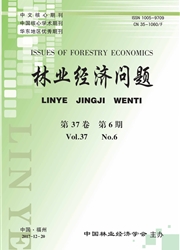

 中文摘要:
中文摘要:
自1990年代以来,中国生态旅游发展迅速,已成为全国旅游业发展中特色鲜明的重要组成部分。本文采用定性与定量相结合的方法,分析了我国生态旅游发展现状特征和存在问题,提出了我国生态旅游发展目标和策略,旨在为我国生态旅游规划建设实践提供思路借鉴。本文认为通过生态旅游协作区、生态旅游目的地、生态旅游线路与生态风景道建设,形成生态旅游公共服务、资源保护、环境教育、政策法规、认证示范、营销推广、社区参与、科技与人才体系,是中国建成世界生态旅游强国的主要路径。
 英文摘要:
英文摘要:
Since the 1990 s, ecotourism has developed rapidly and been an important and distinctive part of the tourism industry in China. Based on an analysis of the current development status and problems of Chinese ecotourism, this paper puts forward the development goals and strategies for ecotourism in the future. In addition, it tries to provide some suggestions for Chinese ecotourism development. It is proposed that the main path for making China a competitive country for ecotourism is to form a comprehensive system including public services, resources conservation, environmental education, policies and regulations, eco-certification, marketing promotion, community participation, technology and talent by constructing ecotourism cooperation areas, destinations, ecotour routes and ecological scenic roads.
 同期刊论文项目
同期刊论文项目
 同项目期刊论文
同项目期刊论文
 期刊信息
期刊信息
